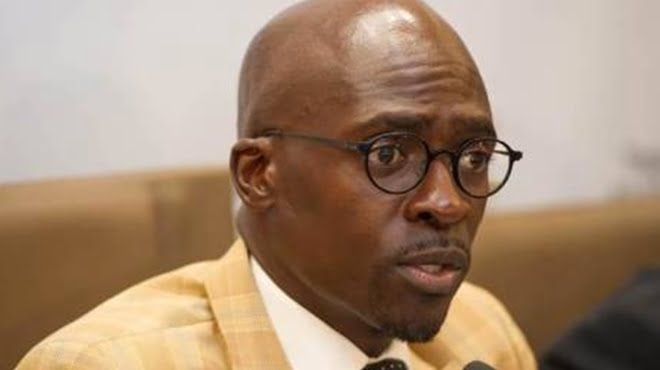Business reaction to the Budget was low-key, accepting of the need to raise extra tax by hiking VAT, but it was concerned the economy was not growing fast enough.
The Cape Chamber’s Janine Myburgh said the VAT increase “reflects the price South Africans are paying the Zuma years of corruption, wasteful spending and low growth. VAT and the other tax increases are going to hurt, but we really have no option but to deal with the damage and set the scene for some healthy growth in the future.
“The Chamber would have preferred deep cuts in government spending with a wage freeze for senior civil servants.
“That would bring in some extra revenue but, more important, it would concentrate the mind of the public service on the desperate situation and the need to take drastic action to reduce wasteful spending.”
SACCI welcomed the Budget as “a balanced act under the circumstances. Overall any increase on taxes in a low growth environment would be a challenge. We support the minister’s decision not to increase … corporate tax and personal income tax.“
Cliff Watson of Grant Thornton said he was surprised not to have seen a higher VAT rise of two percentage points.
“We would have expected at least a two percent VAT rate increase, taking into consideration the administrative burden and business process and system changes VAT vendors will have to endure to affect such change in their ERP systems and accounting treatments.
“Such a significant increase by two percent would have also increased the tax collection and provided the Minister with more scope to reduce the tax burden on the poor by also expanding the zero-rated products or possibly by increasing social grants.”
NWU economist Raymond Parsons described the rise in VAT as “inevitable”. He was optimistic that with Cyril Ramaphosa as President, SA can stave off another rating downgrade.
“The change in political leadership, the positive reception of the SONA and the fiscal mix in the Budget may be just enough to stave off universal junk status for the time being,” he said.
“There is a better chance now that South Africa will be given more time to get its house in order and implement the necessary reform measures to turn the economy around.
“What ultimately comes through all the fiscal challenges in the latest Budget is the overwhelming need for a radical and sustainable boost in SA’s flagging growth rate.”
PwC agreed that the Budget should be enough to keep Moody’s Investors Service from making another cut in South Africa’s sovereign rating.
“Various rating agencies will likely welcome the improved economic growth projections, a narrowing fiscal deficit trajectory, and plans for a turnaround in public debt, which Minister Gigaba presented today,” it said.
The Institute of Race Relations’ CEO Frans Cronje said the Budget was might help avert an imminent downgrade “but the reprieve would be temporary unless President Cyril Ramaphosa and his Cabinet committed to a profound change in policy direction.
“Mr Ramaphosa and his Cabinet would have to up their game to make a compelling case for economic growth.”
Said OUTA CEO Wayne Duvenage: “Taxpayers are sick and tired of seeing taxes increase year after year without material improvement in governance. Any increase in the tax burden on society is extremely frustrating against the backdrop of rampant maladministration and corruption.
“We’re positive that President Cyril Ramaphosa will take state capture seriously and reduce corruption. As such, we see the Budget and tax increases as a necessary bitter pill to swallow, courtesy of Jacob Zuma and his ineffective Cabinet.
“We trust that government will now be put to task to reduce spending and waste, in order to ensure there are no further increase in taxes in 2019.”
Agri SA was peeved at the increased taxes on booze.
It said: “Given the fact that the sector is presently facing serious cost pressures because of the prevailing drought especially in the Western Cape, our view is that the increased excise duties on alcohol might have an adverse impact on the wine industry, and could possibly lead to job losses.
”Some relief in this regard would have been acutely welcomed.”
Meanwhile, Cosatu expressed concern that the budget did not deliver on the positive vision of President Ramaphosa’s State of the Nation speech on Friday.
“COSATU strongly welcomed the vision and plan outlined in the state of the nation address by President Ramaphosa last week. It was emphatic on the need for government to kick-start the economy, create jobs to absorb the millions of unemployed and to tackle the scourges of corruption and state capture that have threatened the very collapse of the state,” it said.
“Yet the budget is deafeningly silent on government’s plans to create jobs and fight corruption.
“COSATU had hoped to see a budget that puts flesh, targets, dates and plans to the bold vision outlined by the President in SONA, in particular, to create jobs and defeat corruption and wasteful expenditure.
“COSATU is disappointed that government failed to rise to the occasion and come with a serious plan and budget to address the nation’s many crises.
“We are disappointed in a budget that bears little correlation with the bold and progressive SONA by the President. It is a costly missed opportunity.”
